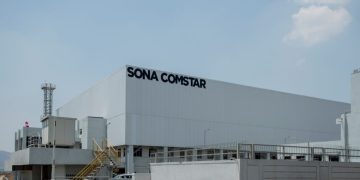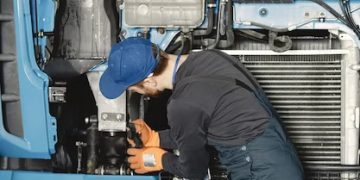In the scorching heat of summer or in regions with high temperatures, heavy vehicle drivers and passengers long for a cool and comfortable environment. The solution lies in equipping these vehicles with air conditioning systems, which not only enhance comfort but also offer a host of benefits. From improved concentration and safety to better air quality and increased productivity, air conditioning can revolutionise the driving experience. However, before embracing the idea, it’s essential to weigh the drawbacks, including higher costs, maintenance concerns, and potential fuel consumption. Let’s delve into the advantages and disadvantages of having air conditioning in heavy vehicles, unravelling the crucial factors that should shape your decision-making process.
Advantages of Having an Air Conditioner in Heavy Vehicles:
Comfort: Air conditioning provides a comfortable environment for the driver and passengers, especially during hot weather or in regions with high temperatures. It helps to maintain a cool and pleasant atmosphere inside the vehicle, which can improve concentration and reduce fatigue, leading to safer driving.
Health and Safety: Air conditioning can improve the air quality inside the vehicle by filtering out dust, pollutants, and allergens. It also reduces humidity, which helps prevent fogging of windows and improves visibility. This contributes to a healthier and safer driving experience.
Productivity: In heavy vehicles, such as trucks or buses, air conditioning can enhance productivity. A comfortable working environment for drivers can result in increased focus and efficiency, ultimately leading to improved performance and fewer errors on the road.
Disadvantages of Having an Air Conditioner in Heavy Vehicles:
Increased Vehicle Cost: The installation of air conditioning systems adds to the initial cost of the vehicle. The inclusion of additional components, such as compressors, condensers, and refrigerant lines, increases the manufacturing cost of the vehicle.
Maintenance and Repairs: Air conditioning systems require regular maintenance to ensure proper functioning. This includes cleaning or replacing filters, checking refrigerant levels, and inspecting the system for leaks. Repairs can be costly, especially if major components need to be replaced.
Fuel Consumption: Air conditioners consume energy to operate, and this additional energy requirement can lead to increased fuel consumption. The vehicle’s fuel efficiency may be slightly reduced when the air conditioner is in use, which can impact operating costs, particularly for vehicles that operate over long distances.
Factors Impacting Vehicle Cost, Taxes, and Insurance:
Vehicle Cost: As mentioned earlier, the inclusion of an air conditioning system in heavy vehicles adds to the initial cost of the vehicle. The exact cost will depend on the type and complexity of the system.
Taxes: Tax regulations may vary depending on the region or country. It’s possible that the presence of an air conditioning system could impact the tax classification or rates for heavy vehicles. It’s advisable to consult local tax authorities or vehicle registration departments for specific information.
Insurance: Insurance premiums for vehicles are influenced by various factors, including the vehicle’s value and specifications. Adding an air conditioning system may increase the insured value of the vehicle, potentially leading to higher insurance premiums.
Cost Considerations for Transportation Charges and Goods:
When considering the overall cost of goods, the impact of air conditioning on transportation charges needs to be evaluated. It’s important to assess whether the benefits provided by air conditioning, such as improved driver comfort, productivity, and safety, outweigh the potential increase in transportation costs. This evaluation should involve assessing factors such as distance travelled, climate conditions, and the value of the goods being transported.
In some cases, the added value of having air conditioning may be justified by improved driver performance, reduced fatigue-related incidents, and enhanced customer satisfaction due to the timely delivery of goods. However, each business should carefully analyse their specific circumstances and determine whether the benefits outweigh the associated costs.
Ultimately, the decision to include air conditioning in heavy vehicles should be based on a comprehensive cost-benefit analysis, considering factors such as initial vehicle cost, ongoing maintenance expenses, fuel consumption, taxes, insurance premiums, and the impact on transportation charges and goods.
Author

Vikrantt Mohan
National President
All India Automobile Workshop Association



























































